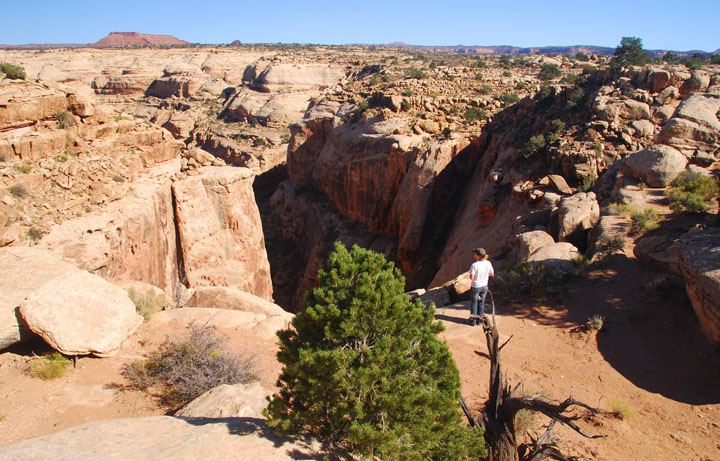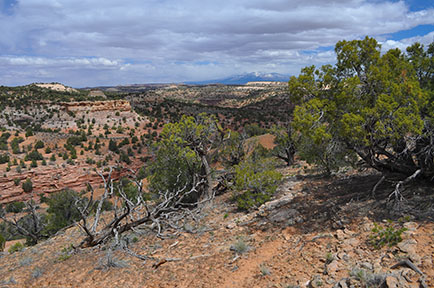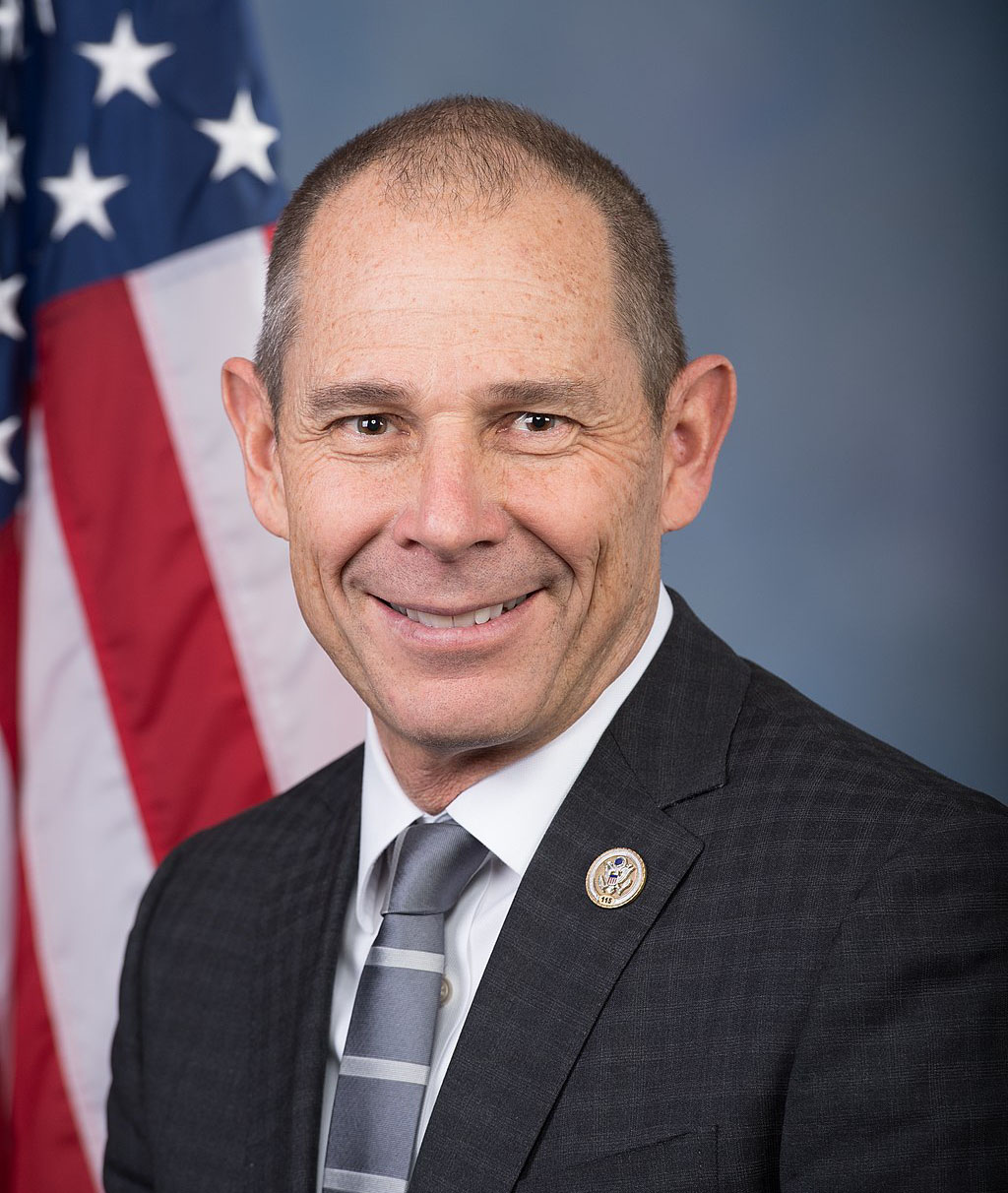Speak Up for Wild Places: Submit Your Comments on the Proposed Public Lands Rule by June 20th
 For more than 40 years the Bureau of Land Management (BLM) has often gotten it wrong, prioritizing resource extraction over other public land uses to the detriment of wildlife, healthy ecosystems, cultural preservation, and climate resiliency. Under the Biden administration, the agency is making an urgently needed course correction by updating its own rules and priorities with an eye toward restoring conservation to its rightful place under the “multiple use” framework Congress directed it to follow.
For more than 40 years the Bureau of Land Management (BLM) has often gotten it wrong, prioritizing resource extraction over other public land uses to the detriment of wildlife, healthy ecosystems, cultural preservation, and climate resiliency. Under the Biden administration, the agency is making an urgently needed course correction by updating its own rules and priorities with an eye toward restoring conservation to its rightful place under the “multiple use” framework Congress directed it to follow.
The BLM is accepting public comments on its proposed “Public Lands Rule” through June 20th (a final public meeting will be held virtually on June 5th). This rulemaking process is a once-in-a-generation opportunity to ensure a better future for America’s wild places. Let’s show overwhelming support for elevating conservation and bringing long-overdue balance to how our public lands are managed!
Photo © Ray Bloxham/SUWA
America’s Red Rock Wilderness Act Picks Up Five Cosponsors in May
 Roughly one month after reintroduction in the U.S. Senate and House, America’s Red Rock Wilderness Act (H.R. 3031 / S. 1310) continues to gain supporters at a steady pace. In May, Senators Gary Peters (D-MI) and Peter Welch (D-VT) joined the list of Senate cosponsors, and Representatives Teresa Leger Fernandez (D-NM), Eric Sorensen (D-IL), and Sean Casten (D-IL) officially endorsed the House version of the bill. The cosponsor count now stands at 22 in the Senate and 46 in the House. Click here to see if your members of Congress are among them.
Roughly one month after reintroduction in the U.S. Senate and House, America’s Red Rock Wilderness Act (H.R. 3031 / S. 1310) continues to gain supporters at a steady pace. In May, Senators Gary Peters (D-MI) and Peter Welch (D-VT) joined the list of Senate cosponsors, and Representatives Teresa Leger Fernandez (D-NM), Eric Sorensen (D-IL), and Sean Casten (D-IL) officially endorsed the House version of the bill. The cosponsor count now stands at 22 in the Senate and 46 in the House. Click here to see if your members of Congress are among them.
America’s Red Rock Wilderness Act is the flagship legislation that would designate more than 8 million acres of wild public land in Utah as federally protected wilderness. As the climate crisis disrupts both natural ecosystems and human communities, safeguarding such large tracts of public land from fossil fuel development and other human impacts can help preserve important wildlife habitat, increase carbon storage, and boost climate resiliency. Passage of the Red Rock bill would also help protect the region’s abundant cultural resources and conserve some of our nation’s most spectacular wild landscapes for future generations to enjoy.
Your advocacy is what drives congressional support for America’s Red Rock Wilderness Act. Please contact your members of Congress today and urge them to become cosponsors (or thank them if they already have)!
Photo © Ray Bloxham/SUWA
Uranium Mining Near Bears Ears?
 SUWA recently learned that two companies—Canada-based Atomic Minerals Corp. and Kraken Energy—are aiming to drill 25 exploratory uranium wells on wilderness-quality lands within a stone’s throw of Bears Ears National Monument—without environmental analysis or public involvement.
SUWA recently learned that two companies—Canada-based Atomic Minerals Corp. and Kraken Energy—are aiming to drill 25 exploratory uranium wells on wilderness-quality lands within a stone’s throw of Bears Ears National Monument—without environmental analysis or public involvement.
The companies staked 324 mining claims covering 6,480 acres of public land on Harts Point, an escarpment of wilderness-caliber land that provides spectacular views of Indian Creek Canyon and the larger Bears Ears landscape.
Uranium mining in southeastern Utah has left a long, ugly legacy of environmental contamination and serious health effects, with impacts disproportionately affecting Native American Tribes and miners for more than a century. More than six months ago the U.S. Department of the Interior committed to involve Tribal governments in all such mining proposals, directing Interior agencies (including the Bureau of Land Management [BLM]) to inform “all potentially impacted Tribal governments” of these types of mining proposals and to “and engage Tribes in discussions about desired post-mining land uses.” The BLM has failed to follow through on this commitment.
SUWA is working to hold the BLM accountable for its failure to comply with Interior Department directives and to ensure that this remarkable landscape gets the protection it deserves. We will do everything we can to fight this ill-conceived project because the larger Bears Ears landscape deserves better than a closed-door, rubber-stamped approval by the BLM.
Photo © Neal Clark/SUWA
Utah Rep. John Curtis Claims Conservation Cred While Practicing Anti-Environment Politics
 A recent Washington Post article highlighting Utah Rep. John Curtis’s opportunistic use of clean-energy tax credits he voted against is just the tip of the proverbial iceberg when it comes to the congressman’s abysmal environmental record. That record includes repeated opposition to common-sense climate change mitigation even as the congressman claims to be a champion of the environment.
A recent Washington Post article highlighting Utah Rep. John Curtis’s opportunistic use of clean-energy tax credits he voted against is just the tip of the proverbial iceberg when it comes to the congressman’s abysmal environmental record. That record includes repeated opposition to common-sense climate change mitigation even as the congressman claims to be a champion of the environment.
So it comes as no surprise that as the chair of the Conservative Climate Caucus (which includes a few of the most anti-conservation and pro-extractive-industry members of Congress), Rep. Curtis has introduced legislation in the House that requires the BLM to withdraw its proposed “Public Lands Rule,” a long-overdue measure that would raise conservation to the same level of importance as extractive uses on public lands. This means that Rep. Curtis is directly opposed to managing America’s public lands in a balanced way that includes conservation.
Actions speak louder than words. If conservation and climate-friendly credentials are what Rep. Curtis is looking for, then he needs to start supporting legislative and policy efforts that will ensure a habitable planet for future generations. Absent real action, his public statements and the Conservative Climate Caucus will continue to serve as little more than a way to greenwash his reputation and slow-walk efforts necessary to make real progress on climate change.
>> Read more about Rep. Curtis’s anti-environment record on our blog

